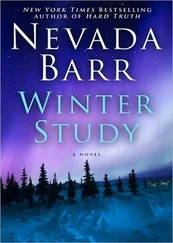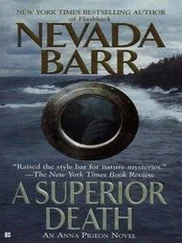“We’ll bear it together.”
“I should have married Mr. Weldrick like he wanted me to.”
“Why?”
“I had another chance. Mam says folks don’t often get more than one. Maybe God took Wolf because I wouldn’t take it. If there was a life to be taken, it should’ve been mine.”
“I can’t believe in a God who would kill a child to prove a point,” Imogene said.
“Imogene! Please don’t!” Sarah glanced nervously up at the clearing depths of the sky. “He does things like that in the Bible all the time.”
“So he does.”
Their skirts were wet and mud-spattered by the time they reached home. Wrapped in a dry robe, Imogene built a fire and arranged their petticoats over a chair in front of the stove, their wet shoes and stockings lined up like black attendants underneath. Sarah, clad only in bodice and pantalets, sat by the table, her eyes fixed on nothing.
By her chair, a picture book lay on the floor. Toys littered a corner of the room, a half-demolished castle of wooden blocks leaned against the bookcase, and a miniature jacket hung beside Sarah’s blue wool coat on a peg by the door.
“Why don’t you lie down for a while, Sarah?”
“Can I lay on your bed?”
“We can trade rooms if you like.”
Sarah stopped in the doorway and looked back. “Nate Weldrick put him out like a stray cat,” she said. “I might have married Nate. I wouldn’t have liked it, maybe, but I know I’ve got to right myself with things. But he put him out without a thought. Drowned him like a kitten.”
Imogene looked away, hiding her eyes with her hand.
Imogene boxed up Wolf’s toys and tidied the house while Sarah slept, and later the two of them sat at the table, Sarah reading, Imogene plying her needle to the hem of a pillow sham. Scented autumn air came in through the open windows, and a small fire burned in the woodstove to take the chill out.
Kate Sills came up the drive with a basket of preserves-gifts from the staff and herself. Wet leaves muffled her footsteps and neither Sarah nor Imogene heard her until she reached the house. Imogene put the kettle on and the three of them sat around the table, the two teachers talking quietly.
“Imogene, Bishop Whitaker and I have discussed it,” Kate said, “and we can get by without you for the first week or so of winter-term, if you’d like.”
Sarah spoke up before Imogene could reply. “Go back Monday, Imogene, you know you should. Teaching always makes you feel better.”
“I don’t want you to be by yourself in an empty house.”
“I’ll be all right. I have some things to do. I’ll have Addie and I can walk over to Mrs. Whitaker’s if I’m lonely.” There was a new firmness to Sarah and no trace of self-pity in her words.
Imogene stirred her tea.
“I think I would like to be alone for a while,” Sarah said, and it was decided.
The last few days of the week, neighbors came and went, bringing things they thought would be needed. Lutie brought fresh linens from the Broken Promise so that Imogene and Sarah would be spared the bulk of the week’s laundry, Mac brought a load of wood cut to fit the potbellied stove-though he’d brought them a cord in September-and Mrs. Whitaker brought over more food than the two of them could eat in a week. It was a relief when, in the evenings, there was time for the two of them to sit together, quiet with each other and their grief.
Trusting to the strength Sarah seemed to have found in her loss, Imogene left for school early Monday morning. Sarah walked with her to the river path. The sun hadn’t been up half an hour, and shadows stretched long over the moving water. Their breath came in clouds, and the frosty air brought blood to their cheeks and noses.
“I’m afraid winter is here,” Imogene said as they reached the path. “You’d better get back inside before you catch cold.”
“I will,” Sarah promised. “Let me walk with you a little further.”
Pleased, Imogene slowed her steps, though she had been late leaving the house. Sarah hooked her arm through the older woman’s and they walked without speaking. The storm had torn the last leaves from the trees along the river’s edge, and bare branches painted a winter scene against the blue November sky. The two women walked on a carpet of mauve and purple. Sarah kicked a clump of leaves, but they were heavy with water and wouldn’t take to the air.
“We used to make great piles of them when I was little, and dive into them. I like remembering then,” Sarah said.
“My father didn’t abide leaf-diving.” Imogene hardly ever mentioned her childhood; all her talk of memories suggested she had entered the world through a schoolroom in her late twenties. “Not for young ladies anyhow.”
They had come to the foot of the hill leading up to the school. Sarah detached her arm from Imogene’s and laid the schoolteacher’s gloved hand against her cheek, but said nothing.
“Thank you for walking with me,” Imogene said. “I enjoy things so much more when you’re with me.”
Sarah watched Imogene until she vanished from sight behind the school door. Then, running lightly over the sodden ground, she hurried home. In Imogene’s room she dragged a chair over to the closet, climbed up, and rummaged through the boxes on the top shelf until she found the one she was looking for-a battered blue hatbox with an ill-fitting lid. She carried it to the bed and dumped off the top. Inside was the Colt.45 that Mac had insisted Imogene keep.
“By the authority of Judge Colt,” Sarah said.
Using both thumbs, she pulled back the hammer and a mechanism clicked, holding it in place. She held the gun away from her and fired. A bullet smashed into the wainscoting and the pistol bucked backwards. Without hesitation, she pulled the hammer back again and turned the pistol around. She pushed the barrel of the.45 against her breast, feeling the cold metal through her bodice. Steadying the gun in her two hands, she tried to imagine life draining from her, pumping out with her blood, leaving emptiness and peace behind: a quiet, permanent stillness.
She would be with Wolf.
Never again would she see Imogene-not in the heaven that Sam’s Bible set forth.
Suddenly the Colt was heavy; it required too much effort to hold her wrists rigid. Sarah set the gun down on the bed, stroking the metal with her fingertip. “God,” she whispered, then slid to the floor and steepled her hands like a child. “God,” she began again, “what do you want of me?” In the silence she could hear the pendulum clock in the front room. “Damn you, answer me!” she cried, and with an angry gesture, swept the.45 off the coverlet. The gun slammed into the wall and the hammer fell. The sound of the gunshot rattled the window glass and the bullet shattered a pitcher on Imogene’s dressing table.
The silence in the room seemed palpable until a loud drip-drip ended it; water from the ruined pitcher had made its way to the table edge.
Sarah pulled herself to her feet and stole from the room. She stopped long enough to gather her coat and bonnet before leaving the house.
The day had warmed and she was flushed with walking by the time she reached the Indian cemetery. She stopped at Wolf’s grave. Loosing her bonnet strings, she pushed it back and let the air dry her temples. “Wolf, my dear baby, I love you very much,” Sarah said, and looked from the dark earth of the grave to the sky. “But I love Imogene too. Maybe more than’s good. Maybe more than God.”
She stood for a moment, searching the sky, before she looked back to the pathetic mound of earth. “Is that why you take my children, Lord?” she breathed. Her throat filled with tears and choked off the words. Hardening her mouth, she scrubbed her eyes with the tail of her coat. “If there is a God,” she said defiantly. “Maybe there’s only love.” She looked into the depths of blue beyond the Sierra and grew afraid and lonely.
Читать дальше












